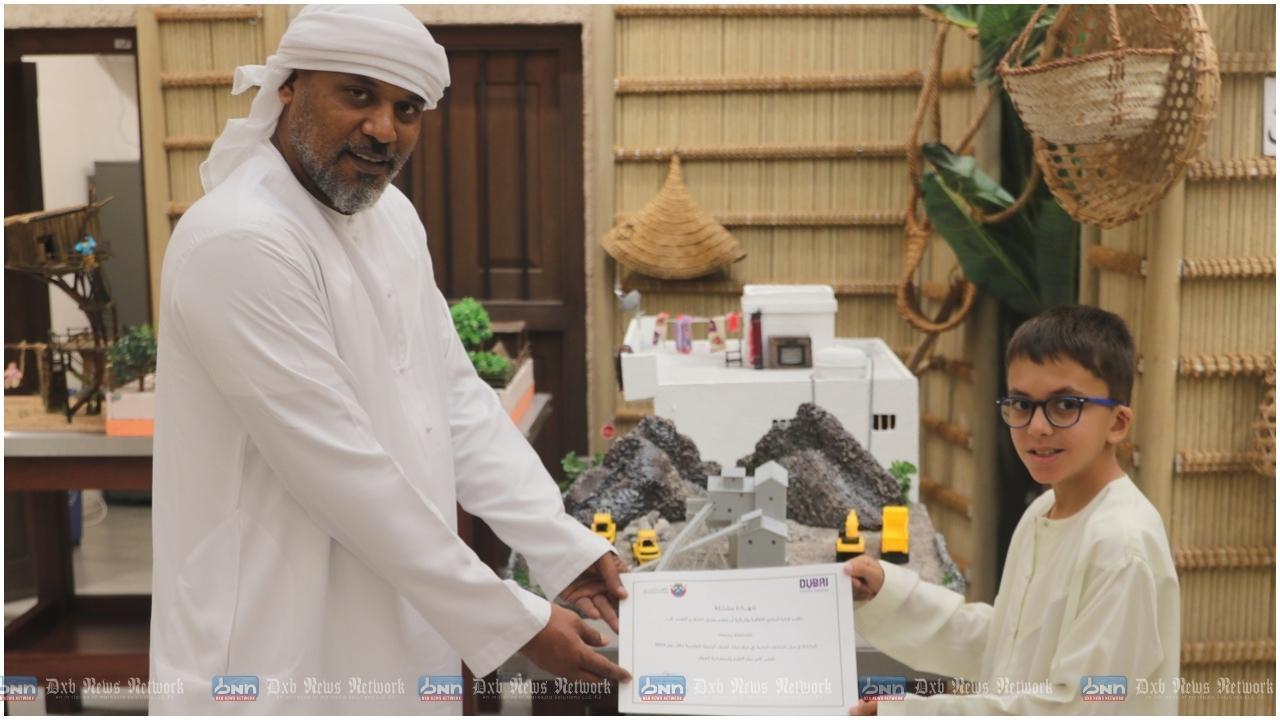
The landscape of healthcare is evolving rapidly, driven by technological advancements that promise to enhance patient outcomes significantly. As we step into a new era, the future of healthcare: integrating technology for better patient outcomes is not just a slogan—it's a transformative approach to medical care. This article explores how technology is reshaping healthcare, improving patient experiences, and leading to better health results.
One of the most significant shifts in healthcare has been the rise of telemedicine. With the advent of high-speed internet and mobile technology, patients can now access healthcare services from the comfort of their homes. This integration of technology allows for convenient access, as patients no longer have to travel long distances for consultations. They can schedule virtual appointments, significantly reducing wait times and travel costs. Moreover, telemedicine has a broader reach, especially beneficial for those in rural areas who may have limited access to healthcare facilities. By providing services remotely, telemedicine enhances engagement, as patients are more likely to connect with their healthcare providers when they can do so from home. This improved communication fosters adherence to treatment plans and ultimately leads to better patient outcomes.
Wearable health devices are revolutionizing how we monitor our health, offering an innovative approach to personal wellness. Devices like smartwatches and fitness trackers provide real-time data on vital signs, activity levels, and even sleep patterns. This continuous monitoring enables early detection of health issues, as wearables can signal irregularities in heart rates or other vital signs, prompting users to seek medical attention before conditions worsen. Additionally, this technology allows healthcare providers to deliver personalized care by tailoring treatment plans based on accurate, real-time data. Empowering patients is another key aspect; by having access to their health metrics, individuals can take charge of their health and make informed lifestyle choices. Ultimately, wearables are not just gadgets—they are crucial tools for enhancing patient outcomes.

Artificial intelligence (AI) is making remarkable strides in diagnostics and decision-making processes within healthcare. Advanced algorithms can analyze vast amounts of medical data quickly and accurately, significantly improving diagnostic capabilities. This technology enhances accuracy, as AI systems can detect patterns that may elude human clinicians, leading to earlier and more precise diagnoses. Furthermore, the integration of AI reduces errors; by assisting healthcare providers in interpreting medical data, the chances of misdiagnosis diminish. AI’s predictive analytics capabilities are also noteworthy; it can anticipate potential health risks based on a patient's medical history, allowing for proactive care that can prevent serious complications. As AI continues to develop, its role in healthcare promises to reshape patient care fundamentally.
The transition from paper-based records to electronic health records (EHR) has been a game-changer in healthcare management. EHR systems facilitate streamlined communication, enabling healthcare providers to easily access and share patient information. This accessibility ensures that everyone involved in a patient’s care is informed and can make decisions based on comprehensive data. Improved coordination among healthcare teams is another advantage of EHRs, as they reduce the risk of duplicate tests and conflicting treatments. Additionally, many EHR systems now include patient portals that empower individuals to view their health records, schedule appointments, and communicate with providers directly. This engagement not only enhances patient satisfaction but also fosters a sense of ownership over one’s health, contributing to better outcomes.
Robotic-assisted surgery is another technological advancement making a significant impact on patient outcomes. Surgeons utilize robotic systems to perform complex procedures with greater precision and control. This approach often involves minimally invasive techniques, which lead to quicker recovery times and reduced post-operative pain. The enhanced precision offered by robotic systems allows surgeons to execute delicate maneuvers that may be challenging for the human hand, resulting in better surgical outcomes. Moreover, smaller incisions associated with robotic surgery translate to a lower risk of infection, contributing to faster recovery and fewer complications. As robotic technology continues to evolve, it holds the potential to transform surgical practices and improve patient experiences dramatically.

As healthcare integrates more technology, concerns about data security and patient privacy become paramount. With the digitization of health records and the use of online services, protecting sensitive patient information is crucial. To address these issues, healthcare organizations are adopting advanced cybersecurity measures, such as encryption to safeguard data from unauthorized access. Regular audits of security protocols help identify and mitigate potential vulnerabilities within the system. Additionally, educating patients about their rights regarding data privacy and the measures taken to protect their information is essential for building trust in this new landscape. As technology continues to advance, ensuring robust security measures will be vital in maintaining the integrity of patient information.
While the future of healthcare looks promising, it is not without its challenges. The cost of implementing new technologies can be a barrier, particularly for smaller practices and rural hospitals that may struggle to invest in cutting-edge solutions. Additionally, the training and adoption of new technologies require significant time and resources, as healthcare professionals must become proficient in using these tools effectively. Another concern is equity of access; not all patients have equal access to technology, which can create disparities in care. Addressing these challenges is crucial to ensure that the benefits of technological advancements are available to all patients, regardless of their circumstances.
As we look to the future, it is clear that integrating technology in healthcare is essential for achieving better patient outcomes. The ongoing evolution of telemedicine, wearable technology, AI, EHR systems, and robotics represents just the beginning of a transformative journey. By overcoming challenges and continuing to innovate, we can create a healthcare system that is more efficient, accessible, and patient-centered. The journey toward the future of healthcare: integrating technology for better patient outcomes is not merely about adopting new tools; it is about reimagining how we deliver care. With a focus on collaboration, innovation, and patient engagement, we can harness technology to improve health outcomes for everyone. The future is bright, and together we can shape it into a healthier world for all.
The article explores the future of healthcare: integrating technology for better patient outcomes. It highlights how technology, like telemedicine and wearable devices, is changing how we receive medical care. Telemedicine allows patients to connect with doctors from home, making it easier for everyone to get help. Wearable devices, such as smartwatches, monitor our health and help us stay informed. Artificial intelligence (AI) is becoming important for diagnosing illnesses accurately, while electronic health records (EHR) make sharing medical information easier. Robotic surgery is also improving how surgeries are done, making them safer and less painful. However, it’s important to remember that using technology means we must also protect patient data. Overall, the future of healthcare: integrating technology for better patient outcomes looks bright, as it helps us take charge of our health and makes doctors' jobs easier.
This article is provided by DXB News Network for informational purposes only. The information about the future of healthcare: integrating technology for better patient outcomes is meant to help readers understand how technology can improve health. Always talk to a doctor or healthcare provider for medical advice or concerns. Your health is important, and the future of healthcare: integrating technology for better patient outcomes is a journey we can all be a part of
Future of healthcare, integrating technology, better patient outcomes, telemedicine, wearable health technology, artificial intelligence in healthcare, electronic health records (EHR), robotics in surgery, patient engagement, health data security, telehealth, digital health solutions, remote patient monitoring, medical technology advancements, personalized healthcare, health information exchange, predictive analytics in healthcare, virtual healthcare services, patient-centered care, health equity and access
#trending #latest #FutureOfHealthcare, #IntegratingTechnology, #BetterPatientOutcomes, #Telemedicine, #WearableTech, #ArtificialIntelligence, #EHR, #RoboticsInSurgery, #PatientEngagement, #HealthDataSecurity, #Telehealth, #DigitalHealth, #RemoteMonitoring, #HealthTech, #PersonalizedHealthcare, #HealthInnovation, #PredictiveAnalytics, #VirtualCare, #PatientCenteredCare, #HealthEquity #breakingnews #worldnews #headlines #topstories #globalUpdate #dxbnewsnetwork #dxbnews #dxbdnn #dxbnewsnetworkdnn #bestnewschanneldubai #bestnewschannelUAE #bestnewschannelabudhabi #bestnewschannelajman #bestnewschannelofdubai #popularnewschanneldubai

During the visit, His Highness toured the exhibition, visiting various local and international pavilions...Read More.

In the first ten months of 2024, Dubai Real Estate Corporation (DREC) and its subsidiary, Wasl Group, saw a 28% rise in revenues compared to 2023...Read More.
 Salah inspires Liverpool comeback to extend lead to eight points at Southampton
Salah inspires Liverpool comeback to extend lead to eight points at Southampton
Liverpool came from 2-1 down as Salah scored twice in the second half, reaching 10 goals
 Nine-Year-Old’s Model of Hajar Mountains Earns Recognition from Dubai Culture & Arts Authority.
Nine-Year-Old’s Model of Hajar Mountains Earns Recognition from Dubai Culture & Arts Authority.
educational journey by nine-year-old Henry Zielinski, a Grade 3 student at Clarion School, underscor
 Muhammad Hamza Raja: A Bodybuilder Who Inspires the World
Muhammad Hamza Raja: A Bodybuilder Who Inspires the World
Muhammad Hamza Raja’s story is a perfect example of someone who has embraced this spirit.
 Yeh Kaali Kaali Ankhein 2 Review: Tahir Raj Bhasin Shines
Yeh Kaali Kaali Ankhein 2 Review: Tahir Raj Bhasin Shines
Yeh Kaali Kaali Ankhein 2 continues the thrilling story with fresh twists and new challenges.
 Manoj Bajpayee Discusses Indie Cinema Crisis & Why Bollywood Acting Is the Toughest Job
Manoj Bajpayee Discusses Indie Cinema Crisis & Why Bollywood Acting Is the Toughest Job
The acclaimed actor candidly spoke about his career, fame, and experiences in films.
Khaled bin Mohamed bin Zayed visits 6th Abu Dhabi International Boat Show

During the visit, His Highness toured the exhibition, visiting various local and international pavilions
Dubai Real Estate Corporation Reports 28% Revenue Growth

In the first ten months of 2024, Dubai Real Estate Corporation (DREC) and its subsidiary, Wasl Group, saw a 28% rise in revenues compared to 2023
4th Al Sila Marine Festival to Be Held in Al Dhafra Under Hamdan bin Zayed

The Abu Dhabi Heritage Authority and the Abu Dhabi Marine Sports Club are organising the event
The Rise of Sustainable Clothing: How Eco-Friendly Fashion is Trending

Discover the growing trend of sustainable fashion for a better future
Egypt and Saudi Arabia wrap up ‘Piercing Arrow 2024’ joint exercise

The training took place in Egypt's Southern Military Zone and the Southern Fleet's operational area, with observers from allied and friendly nations
Top TikTok Beauty Products for a Glowing Look

Discover top TikTok beauty products for a glowing, radiant look
2nd Abu Dhabi Maritime Awards Honors Top Marinas in MENA and Türkiye

The Pearl Island Marina in Qatar won silver, while bronze was awarded to Abu Dhabi Marine in the UAE
Abu Dhabi Kingfish Championships to Feature AED 4.3M+ Prize Pool

The event aims to preserve maritime traditions and promote sustainable, regulated traditional fishing, reflecting values of authenticity
How Technology is Changing The Future of Work and Education

Discover how technology is transforming work and education for all
Nita Ambani stuns at IPL auction in tweed pantsuit and diamond brooch

Nita Ambani wowed the crowd at the IPL Auction 2025 in a stunning navy blue tweed suit. The price? Absolutely jaw-dropping
© DNN. All Rights Reserved.